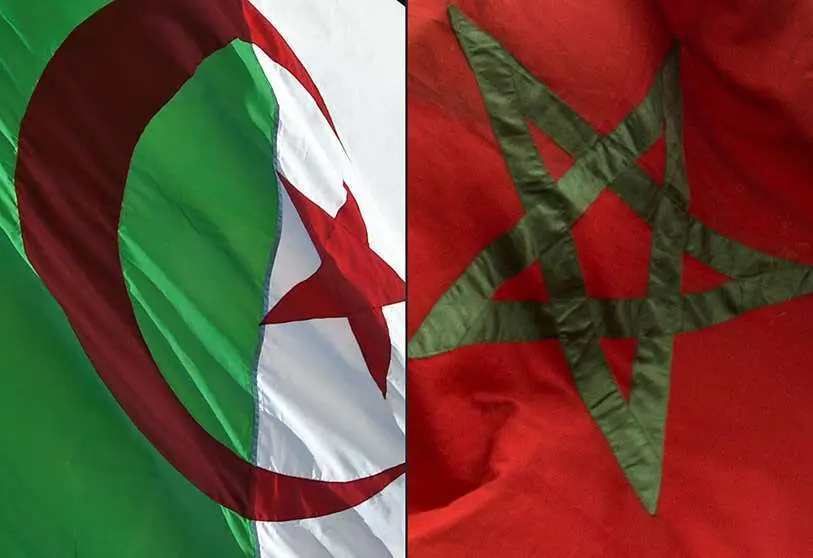Algeria must negotiate

The decision of the Spanish president, Pedro Sánchez, to recognise as realistic, serious and credible the Moroccan initiative for a broad autonomy for the Sahara under Moroccan sovereignty is a considerable step forward to promote within the United Nations a political solution agreed between all parties that is fair, lasting and mutually acceptable, as supported by the latest UN resolution of October 2021. And in this context of having a solution closer to home: the Saharawis win because autonomy under Moroccan sovereignty obliges family reunification, guaranteeing employment, housing, health and education for these thousands of people and their families, all from Saharawi tribes in the western region and those who have been living in Tindouf for the past 46 years.
Just as Russia is not Putin, the Sahara is not just the Polisario Front or Algeria, even if they are necessary to negotiate. In recent years, movements such as Sahrawis for Peace and the Sahrawi Association for the Defence of Human Rights have taken up the growing unease of many inhabitants of the camps in the Tindouf region about the precarious life they have suffered for so many years, coupled with the repression of their freedoms, which aggravates the lack of future horizons and hope for a dignified and better life.
In the diplomatic contacts that have taken place over the last few days between the United Nations Special Envoy for the Sahara, Staffan de Mistura, and representatives of the countries of the region, among them the Spanish Minister of Foreign Affairs, José Manuel Albares, in Brussels, the adoption of a series of decisions was discussed, culminating in the convening of a new negotiating table in Geneva in the coming weeks, with the aim of reaching a solution to the conflict, which would also bring the two major Maghreb countries, Morocco and Algeria, which currently have broken off diplomatic relations, closer together.
The United States is playing a key role in helping to iron out the most sensitive aspects for the parties involved and to achieve the progress necessary for an understanding that will bring about stability in North Africa that is relevant to all. The visit to Madrid, Rabat and Algiers during the week of 7 March by the US Deputy Secretary of State, Wendy Sherman, made it possible to bring essential aspects between Morocco and Spain to a close and made it clear to the Algerian government the need to accept the open dynamic in favour of autonomy for the Sahara under Moroccan sovereignty with the corresponding negotiation with demands admissible to both parties. And the acceptance of the Polisario Front.
The US Secretary of State, Antony Blinken, travels to Rabat on 29 March and Algiers on 30 March to address the Russian invasion of Ukraine, a very delicate context that requires conflict closure. Blinken's agenda in Algiers includes security, regional stability, trade cooperation, human rights and fundamental freedoms. That Algeria does not maintain its historical alliance with Russia, looking to the Sahara and the Sahel, and can engage in better relations with Morocco would be an important step towards clarifying the internal Algerian situation and initiating the recovery its economy and citizens need. That Algeria has not retaliated by cutting off gas supplies to Spain following its support for Morocco in the Sahara can be seen as a symptom to be taken into account, beyond the discomfort expressed and the recall of its ambassador to Madrid for consultations.
In this virtual calendar that the political leaders of the countries of the region have marked on their mobiles, the Spanish Foreign Minister, José Manuel Albares, will go to Rabat on 1 April to stage the end of the diplomatic crisis between the two countries with his Moroccan colleague, Nasser Bourita, and the beginning of a new stage in relations, which King Mohammed VI, in his speech on 20 August, said would be unprecedented, with the recovery of trust and mutual respect, with the constant aim of increasing relations in all sectors. This visit has on its agenda the opening of the land and sea borders between the two countries, which will be prepared in April according to the indispensable security parameters, and the ministers are expected to convene a High Level Meeting between the two governments, pending since December 2020, for the signing of numerous sectoral agreements and with the presence in Rabat of President Pedro Sánchez, who must join the Popular Party to this State Foreign Policy decision, and manage the self-interested reproaches of Podemos and the Catalan and Basque pro-independence and other groups.
The important thing is that Spain supports the autonomy plan for the Sahara under Moroccan sovereignty to solve the conflict after 46 years, while the Kingdom's government offers solvent and lasting guarantees on Ceuta, Melilla, the territorial waters of the Canary Islands and the control of migratory flows with financial aid from the EU. The two sides give in, regain trust and mutual respect, and will have to honour their commitments. The solution will benefit thousands of Saharawis.

